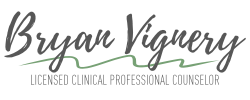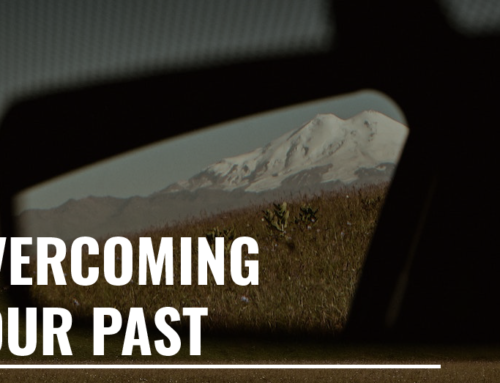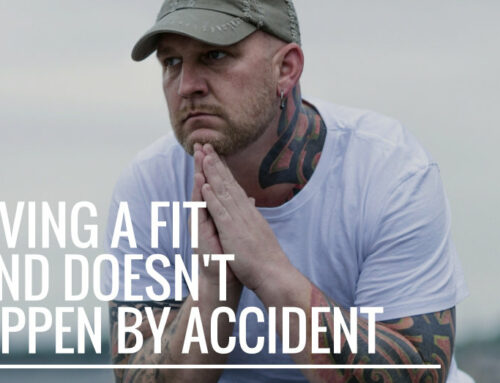A few weeks ago I was having a conversation with a friend about tolerance in our world. I believe we have strayed far away from truth so much that we are blinded as a world by tolerance. The following Sunday after this conversation was had, I was at a service at our church and Pastor Clint throws out this quote:
“We live in a society that has exalted things like tolerance, diversity, peace, and harmony so much that I fear we may value them more than TRUTH.” – Clint Sprague
This started me on a quest throughout the last couple of weeks of looking for the tolerance around me. As a therapist, many of my patients are a reflection of tolerance taken too far. They moved too far from the “truth line” and are struggling with getting back on track. We are not intended to do life alone so getting some feedback from those that we trust can be extremely beneficial.
Let’s take an internal look at tolerance. Each of us have formulated our belief systems through our life experiences, wether good or bad, over the course of our lives. Now I’m not necessarily talking about our moral belief system. I’m talking about beliefs that people subscribe to about people, places, events, self, etc. From the time we were born we have learned some things correctly and some things incorrectly. We have standards that we develop for ourselves and quite frankly. Some of those standards are so far from the “truth line” that we lose our way over a lengthy timeline. I believe that defines a good portion of our world!
Some of us, through this journey, have made radical changes toward a belief system that incorporates God and biblical truth. So let’s get real basic, if we believe in God, why would we tolerate the things that we tell ourselves about people, places, things and especially ourselves? The bible tells us in Genesis 1:27:
So God created man in His own image; in the image of God He created him; male and female He created them.
Do we throw out that “truth line” because we have gotten of course? Do we adjust our “truth line” so it reads that God created some people in his image but not me? Without a “truth line” we do not embrace true joy and peace.
I would like to hear what makes up your “truth line”? What do you find is the best way to get back when you have strayed too far?







Bryan,
This is such a timely truth your are bringing to the surface. You call it getting to the “Truth Line”, while many of us call it being politically incorrect. As a younger man, i somewhat feared coming to the day that i would be condemned for my faith, now i find myself setting my heel in the ground, at the TRUTH LINE. I can only go so far until i call this political correctness what it is, a LIE. God loves all men, but i believe he hates the SIN of their lives. When i was continuing my life in SIN, i found myself missing out on His blessings for my life. Is that God’s fault? Is that just the way that he made me? NO, i knew what his set of rules and boundaries were for my life and i CHOSE to live outside of those boundaries. God didnt stop loving me, he kept nudging me back to the TRUTH of his love. He is a LOVING God, but he is also a JUST God. We forget about that last part, that there are consequences for us when we choose sin over God’s plan. I live the consequences every day for mistakes long ago, but God still loves me and i believe he is bringing me back to his season of favor as i grow back closer to him. God Bless You Bryan, for drawing the TRUTH LINE..
Rob Long
Focus November 2010
It’s an interesting topic for both religious and non religious alike. I believe the path to finding your truth is the same but far more easy with religion. I’ve been aware of my truth line since my early 20’s and have seen it evolve over the years. In my teens, my truth line was what my family set out for me and what I gleaned from my friends religious beliefs. I internalized truth to fit my world and perception of how that world affected me. These beliefs formed my subconscious truth line. I say subconscious because I never really thought about it as a whole. I rarely crossed the line because I had no reason to. My world was very protected and my course had for the most part been laid out for me. That changed when I started college. I was exposed to a whole new world of new points of view, religion, sex, drugs, and a rapidly evolving culture centered around sharing of information though the internet. From there, every point that made up the line was being questioned by the new world that I was exploring. I found myself crossing my truth line on a regular basis based on what I thought felt good. The interesting thing about tolerance or crossing the line is that it often feels very much like telling a lie. In reality it is a lie to one’s self which offsets the good feeling and leave bad feelings that often last much longer. Each time the line is crossed, it makes it easier and easier to cross the line the next time. Eventually the line shifts to form a completely new and overall negative line. You can see many examples of this in society. One common example would be with drinking turning to pot smoking turning to harder drugs. Those that do not have a truth line continue to cross their own truth lines that are not firmly defined. This creates a path to destruction. You can see this with drinking, food, sex, and even religion. That is what makes God and the bible so important to defining and maintaining your truth line. There has to be a baseline from which to start and measure truth. I am now in the process of recalibrating my line back closer to where I began in my early 20s. long process…..
A Comment from Linked in group FAITH, Incorporated – Kansas City:
You have to define the word before you can engage in the discussion. The problem is not whether people accept truth. The problem is what definition people pack into that word. Post modern education has, for many years, destroyed the idea of objective, absolute truth.
When you talk of tolerance, diversity, peace and harmony, you’re not talking about absolute concepts of reality. You’re talking about relative states of being, tied to current ideals and moral values. The definition of truth is therefore affixed to correct and incorrect. In this scheme as knowledge is gained, truth changes. But that’s not what truth is. Truth is discovered, not created. The increase in knowledge is merely a revelation of what had already existed. Truth IS. Truth exists whether we discover it or not. Truth can be revealed and known, but not knowing does not abrogate what already exists. Truth is that which is objective and absolute and that which is revealed by both knowledge and experience, but truth cannot be manufactured. Therefore, if truth is to be objective and absolute, it must be founded on something that is also objective and absolute. Such a foundation requires a maximal being because without a personal, maximal being there is only random chance. Random chance then merely requires one to capitalize on opportunity; in other words, relativistic truth. Random chance means that there are no absolutes, there is no objective. Without a personal being there is no purpose; and purpose requires intellect. The very definition of a maximal being is God, and God defined Himself as “I AM.” Therefore, either God is Truth (objective, absolute, inviolate truth), or Truth is not. If Truth is not, there can be that which is true, but there cannot be truth. If there is no Truth, then your attempt at drawing out a conversation on these topics is moot. You have no basis for asserting that there is benefit of truth when examining either morality, or life experiences. To each his own. However, if there is Truth, then to each his own, at his own risk, because there is an author of Truth.
A Comment from Linked in group FAITH, Incorporated – Kansas City:
I find when looking for the Truth, it is easy to find when worshiping at Church or among my close friends and family. It becomes more difficult when I go to work. Who is in my presence that believes and who isn’t? Does it matter? What truly matters is holding tight to the Holy Spirit that resides in me. To unleash the power to reflect Christ to all I come in contact with. How can I stay grounded? How do I not forget the Truth? When I see tolerance for things of which the Holy Spirit has convicted my heart, what do I do? Do I confront? Do I engage myself? Staying in the Word and seeking His guidance helps me. Being a member of a small group seeking His guidance in our work helps me with accountability. I must remember to continually reflect His Light with hopes that it will draw people to me that wants to know what makes me different. Without daily devotions and prayer, it would be highly difficult for me to walk with the Truth and feel secure. I don’t need to judge others, just focus on me, my actions, my reactions and let the Holy Spirit work through me so that others desire the peace, love and joy that lives through me.